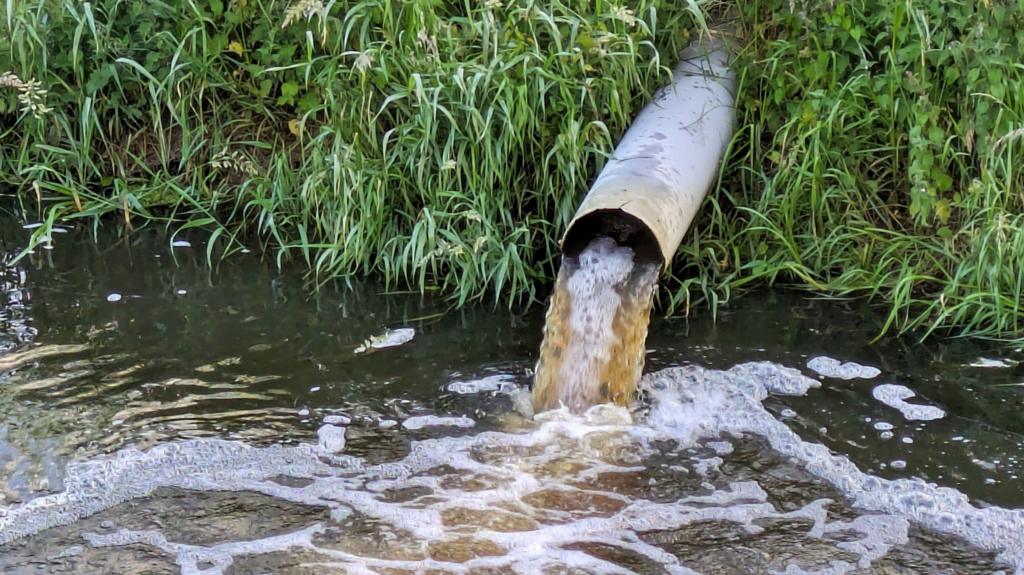The UK government has announced plans to expedite and simplify the process of fining English water companies for discharging untreated sewage.
Under the proposed changes, automatic penalties of up to £20,000 would be levied for certain minor offenses, while more significant breaches would be easier to prosecute.
Data collected from the water industry’s monitoring systems has revealed frequent violations concerning sewage spills in recent years. However, the Environment Agency, the regulatory body, has acknowledged difficulties in taking effective action.
Environment Secretary Emma Reynolds stated, “I want to equip the Environment Agency with the necessary tools to address all instances of rule-breaking,” while announcing the proposals.
She further added, “The introduction of new, automatic, and more stringent penalties for water companies will ensure swift repercussions for offenses, including inadequate sewage treatment and maintenance failures.”
The proposed plans will be subject to a six-week public consultation period commencing on Wednesday.
Water UK, the trade association representing English water companies, responded favorably to the proposals. A spokesperson stated, “It is appropriate for water companies to be held accountable when failures occur.”
The installation of monitors on all sewage outflows in England has, in recent years, highlighted the extent of raw sewage discharge and the limited enforcement actions taken by the Environment Agency in response to rule violations.
BBC News investigations have documented numerous instances of sewage spills during dry weather, as well as occasions where treatment facilities released sewage before processing the legally required volume.
A recent BBC report indicated that the Environment Agency attended only 13% of reported pollution incidents, often relying on information provided by the water companies themselves.
The government anticipates that the new system will generate between £50 million and £67 million annually. However, the primary objective is to incentivize water companies to improve their practices. Any fines levied will be covered by shareholders and will not be passed on to customers through increased water bills.
The enforcement system for the most severe pollution offenses will remain unchanged. The Environment Agency will still be required to pursue legal action against water companies and demonstrate, beyond a reasonable doubt, that an offense has occurred. A successful prosecution could result in substantial fines, potentially reaching millions of pounds.
The proposed changes are primarily focused on addressing more minor, frequently occurring offenses that have historically gone largely unpunished.
The plans include the introduction of automatic financial penalties of up to £20,000 for breaches such as failure to report a significant pollution incident within four hours, improper reporting of spill data, or instances where emergency overflow outlets discharge sewage more than three times per year.
For more serious offenses, the government aims to streamline the process for the Environment Agency to take action.
The proposal involves reducing the burden of proof from “beyond all reasonable doubt,” the standard in criminal proceedings, to “on the balance of probabilities,” which is used in civil cases. The maximum fine that the Environment Agency can impose without court intervention could be raised to £500,000.
The reduced burden of proof for certain offenses is already codified in law through the Water (Special Measures) Act, which received Royal Assent in February 2025. The current six-week consultation will determine the specific offenses to be included and the corresponding fine amounts.
James Wallace, CEO of the campaign group River Action, commented, “Fines of £500,000 are insignificant to billion-pound companies like Thames Water.”
“To prevent negligent firms from polluting our rivers and short-changing their customers, higher penalties and urgent, comprehensive reform are essential.”
Sign up for our Future Earth newsletter to keep up with the latest climate and environment stories with the BBC’s Justin Rowlatt. Outside the UK? Sign up to our international newsletter here.
Blue-green algae has been detected in the lough intermittently over the past six decades.
Previously the country was one of the world’s only mosquito-free zones.
The £1 coin-sized discs escaped from a treatment works following a power failure, says Welsh Water.
The report also calls for the creation of an independent environmental regulator.
The world’s race to decarbonise has led to the rise of electric cars – and with it, soaring demand for lithium, which is required for the batteries

